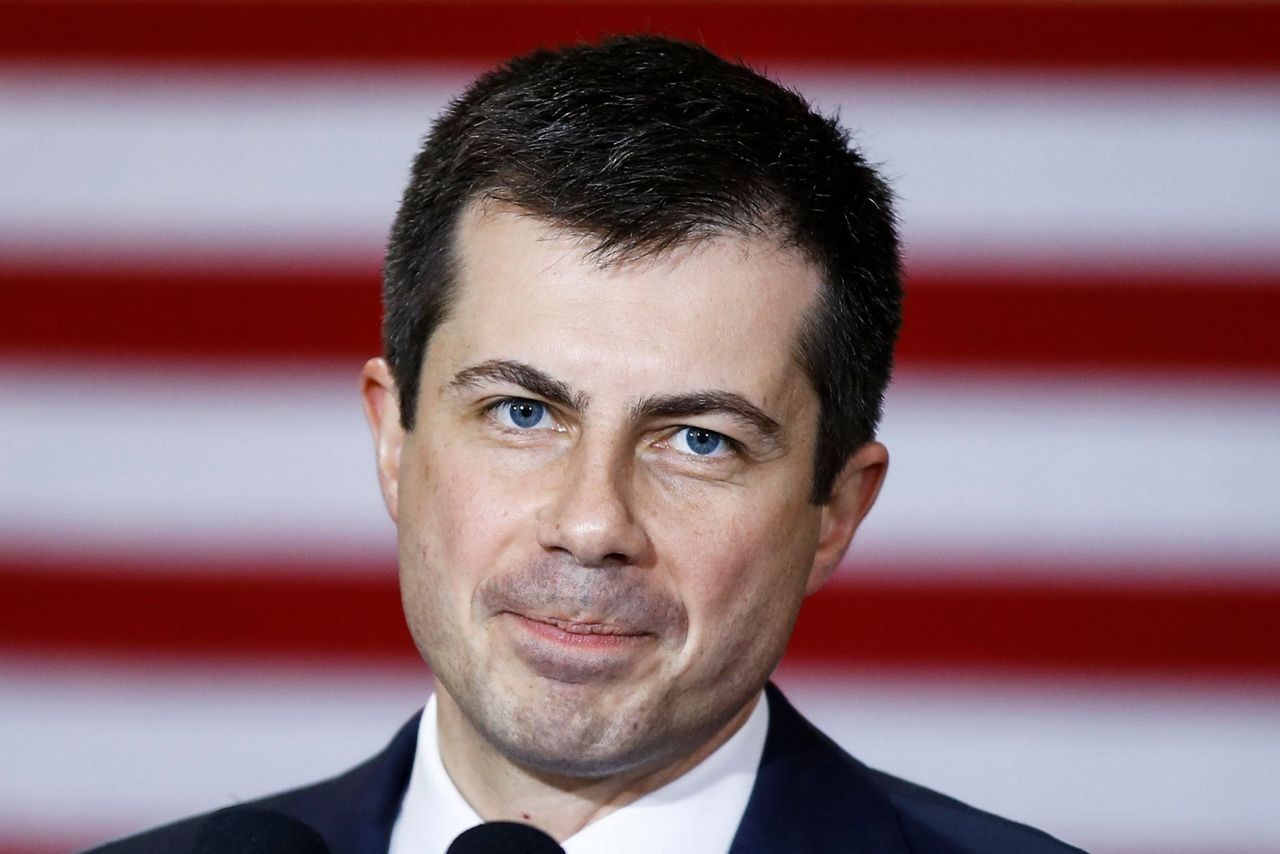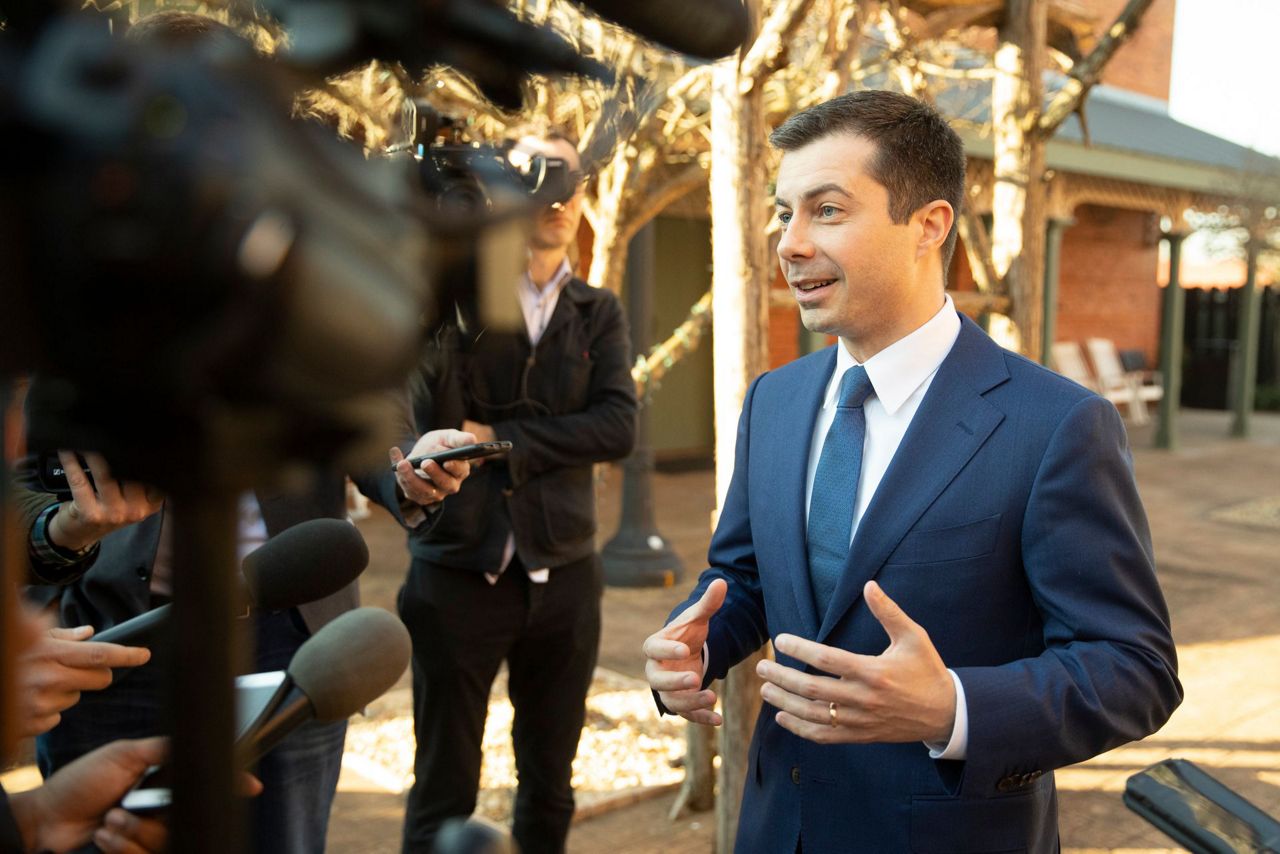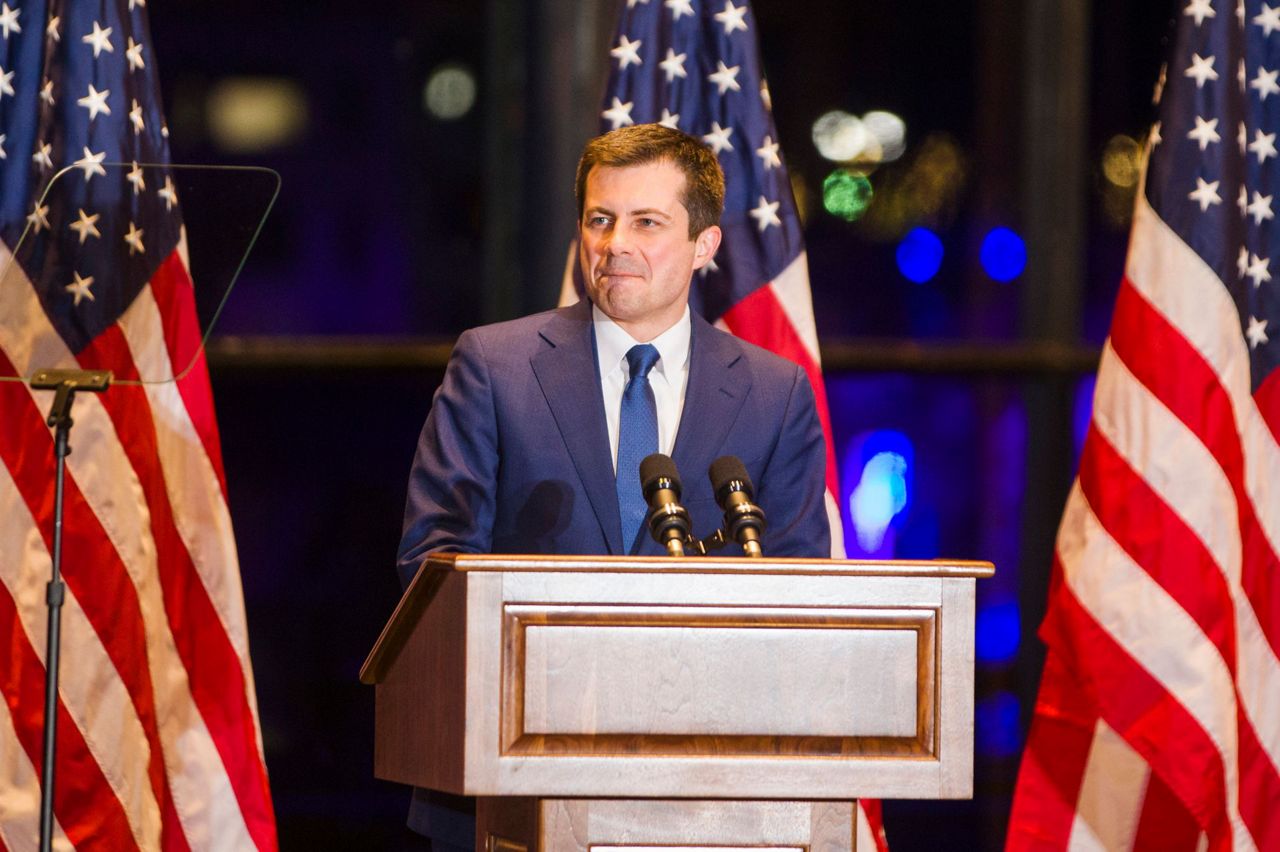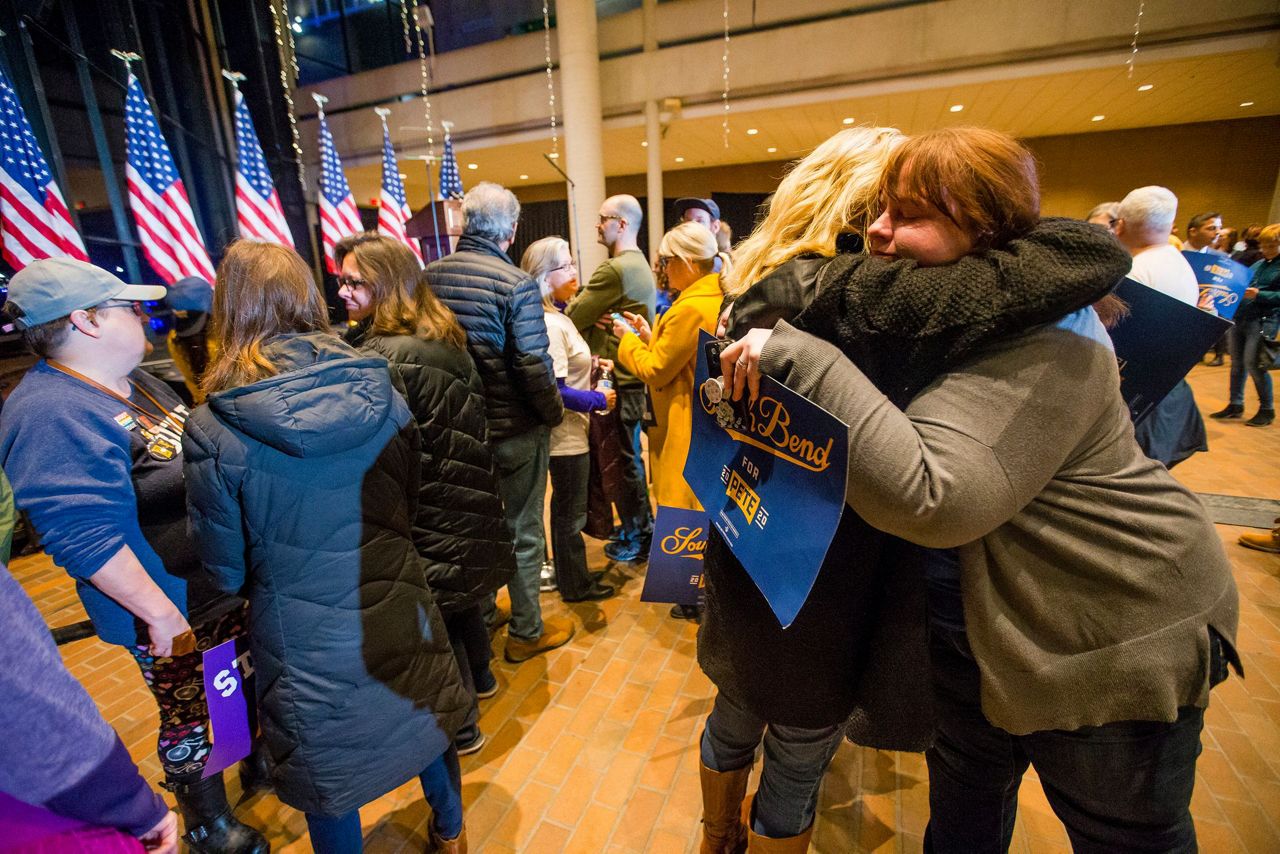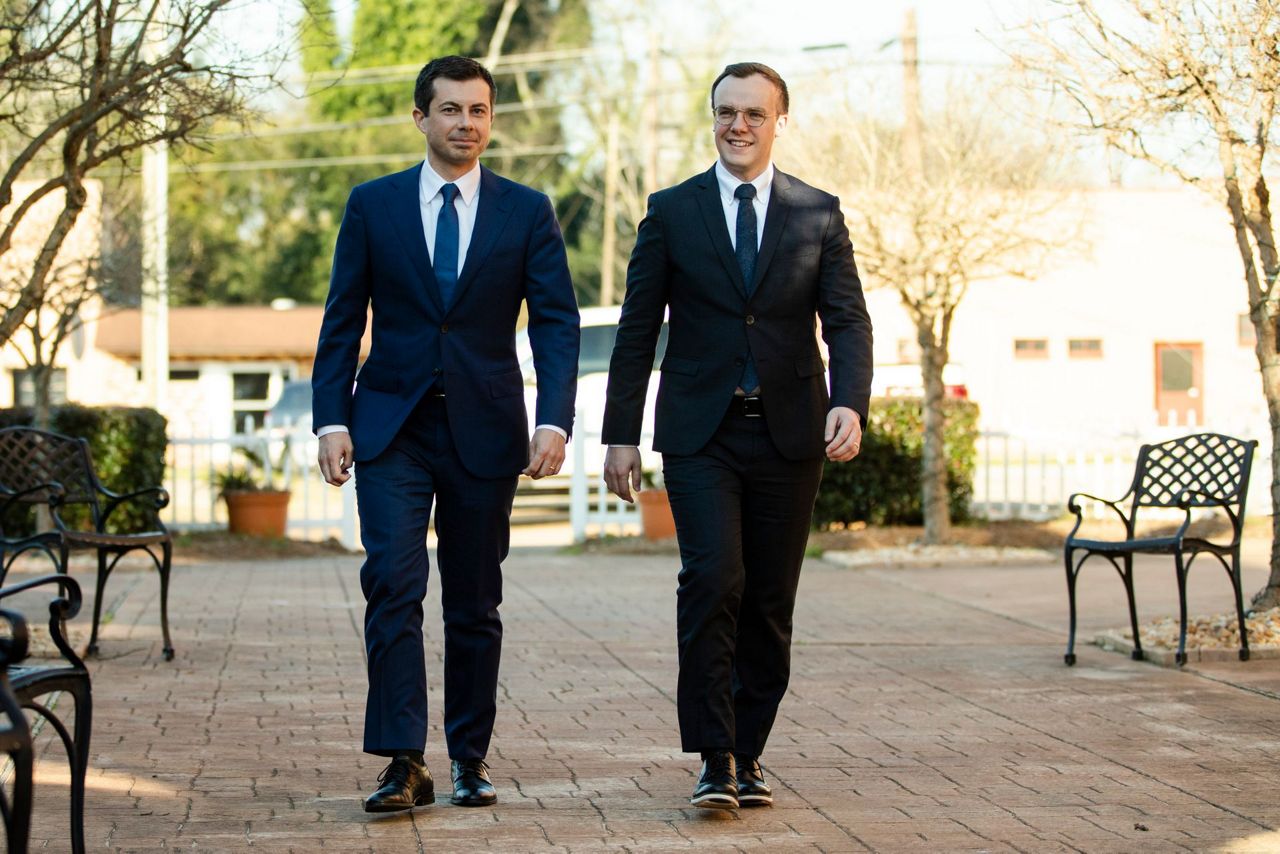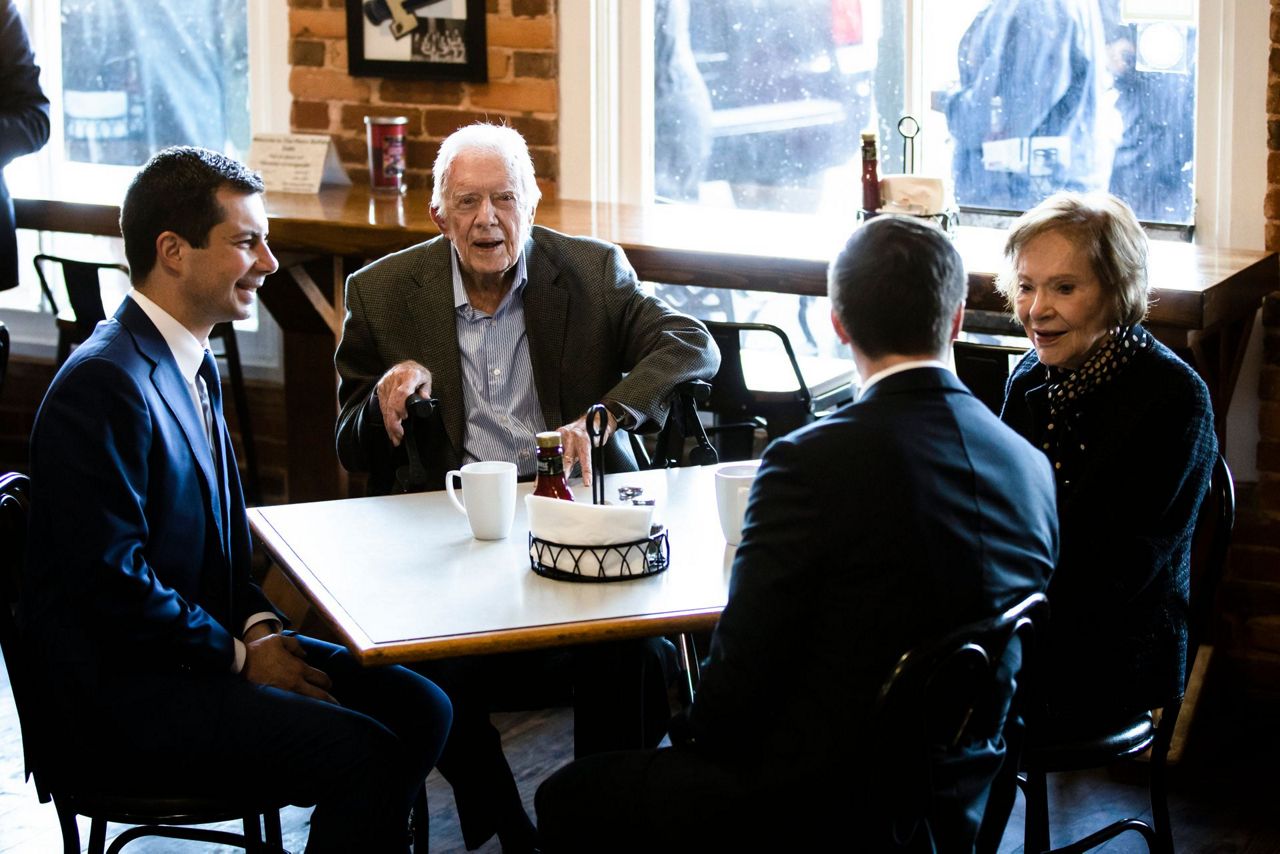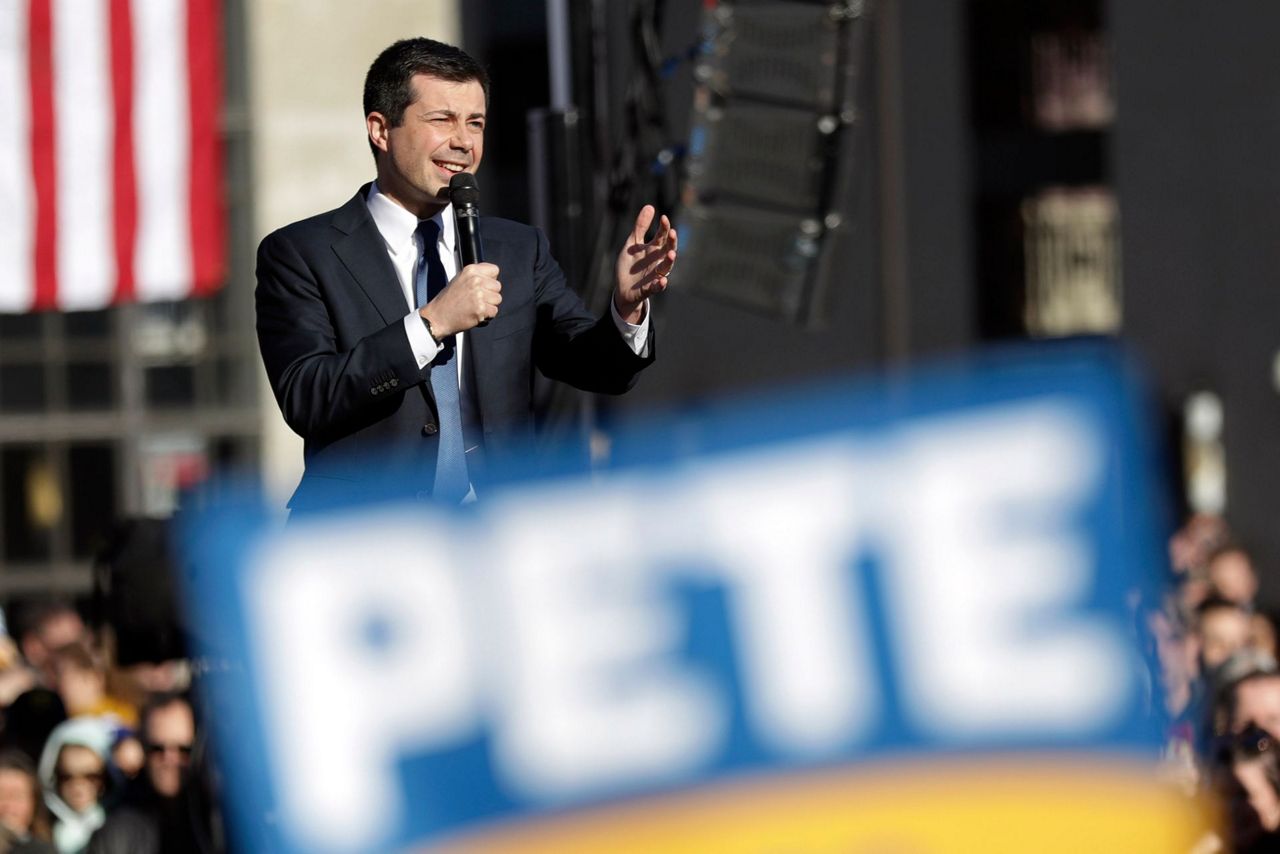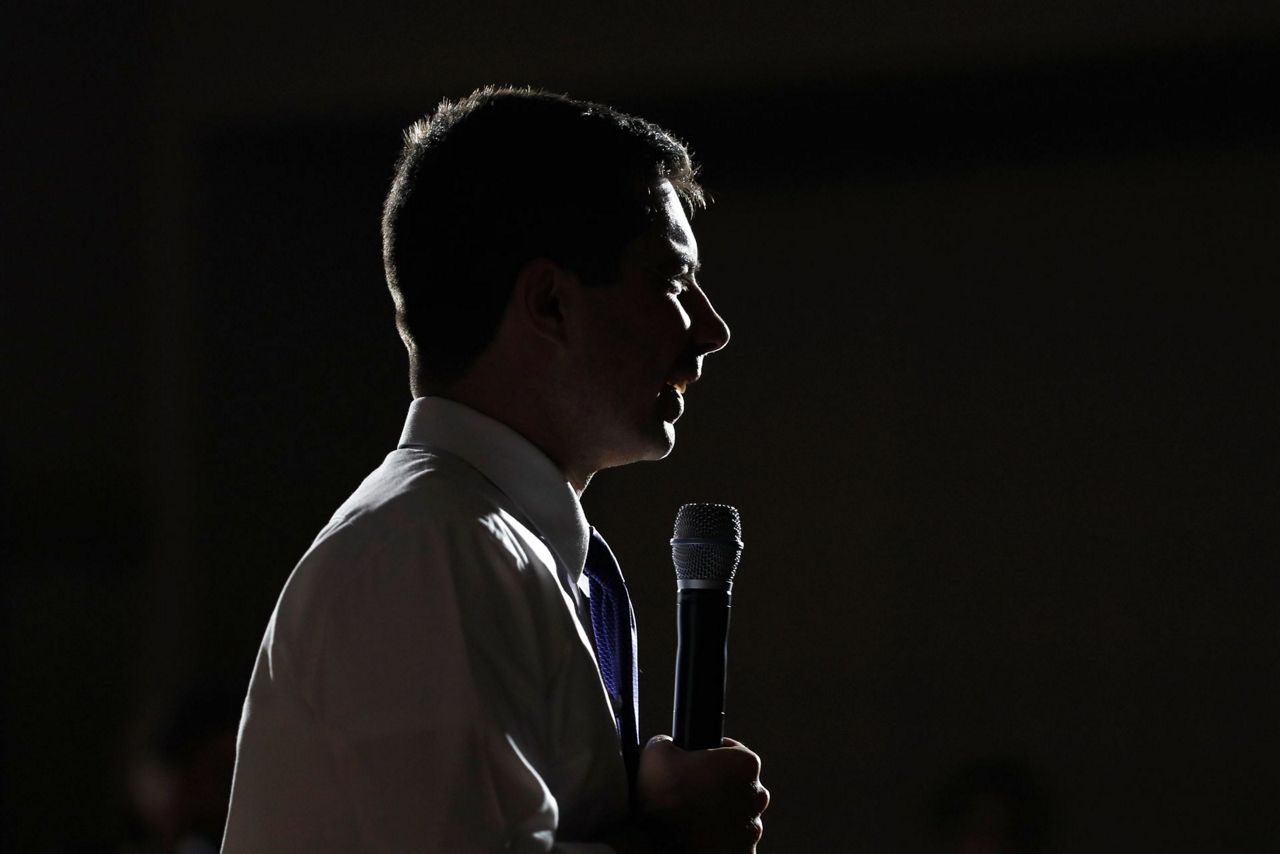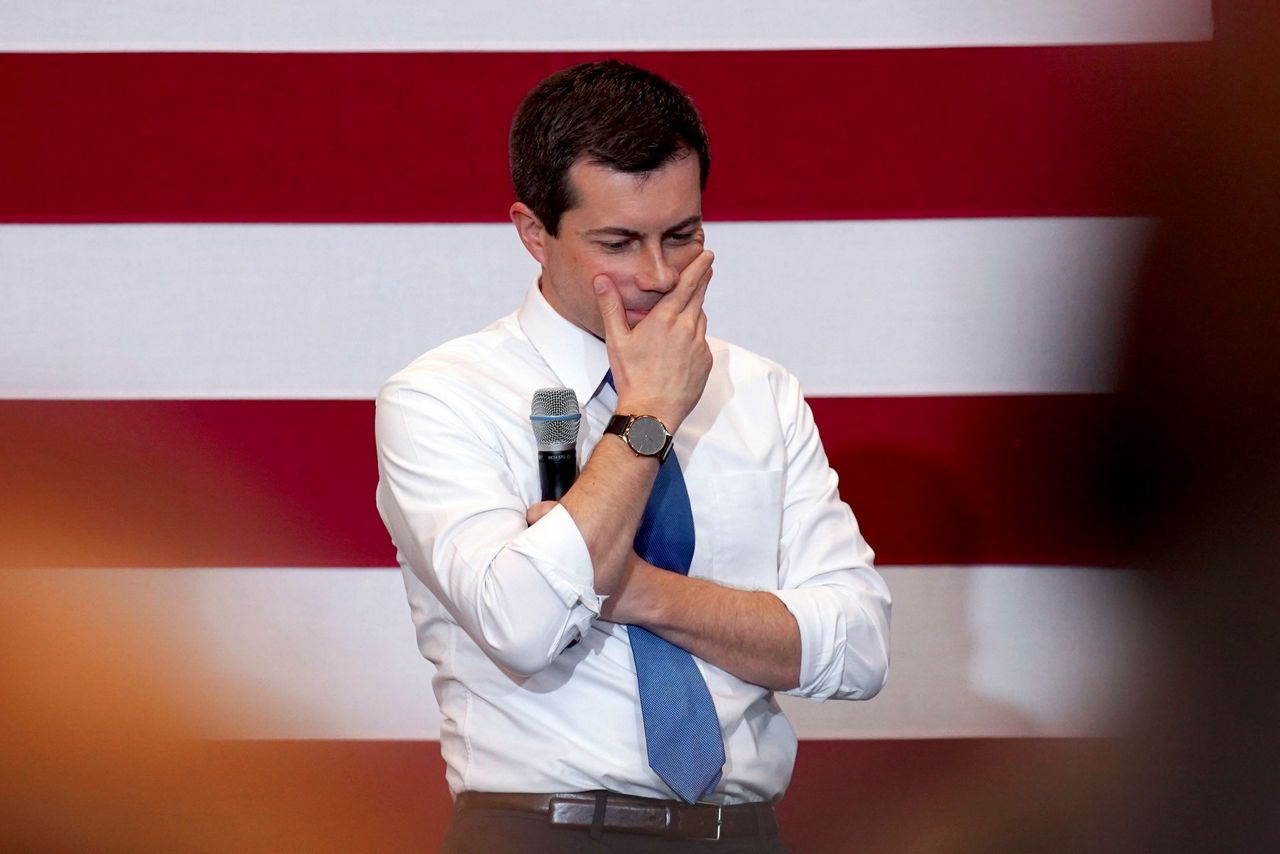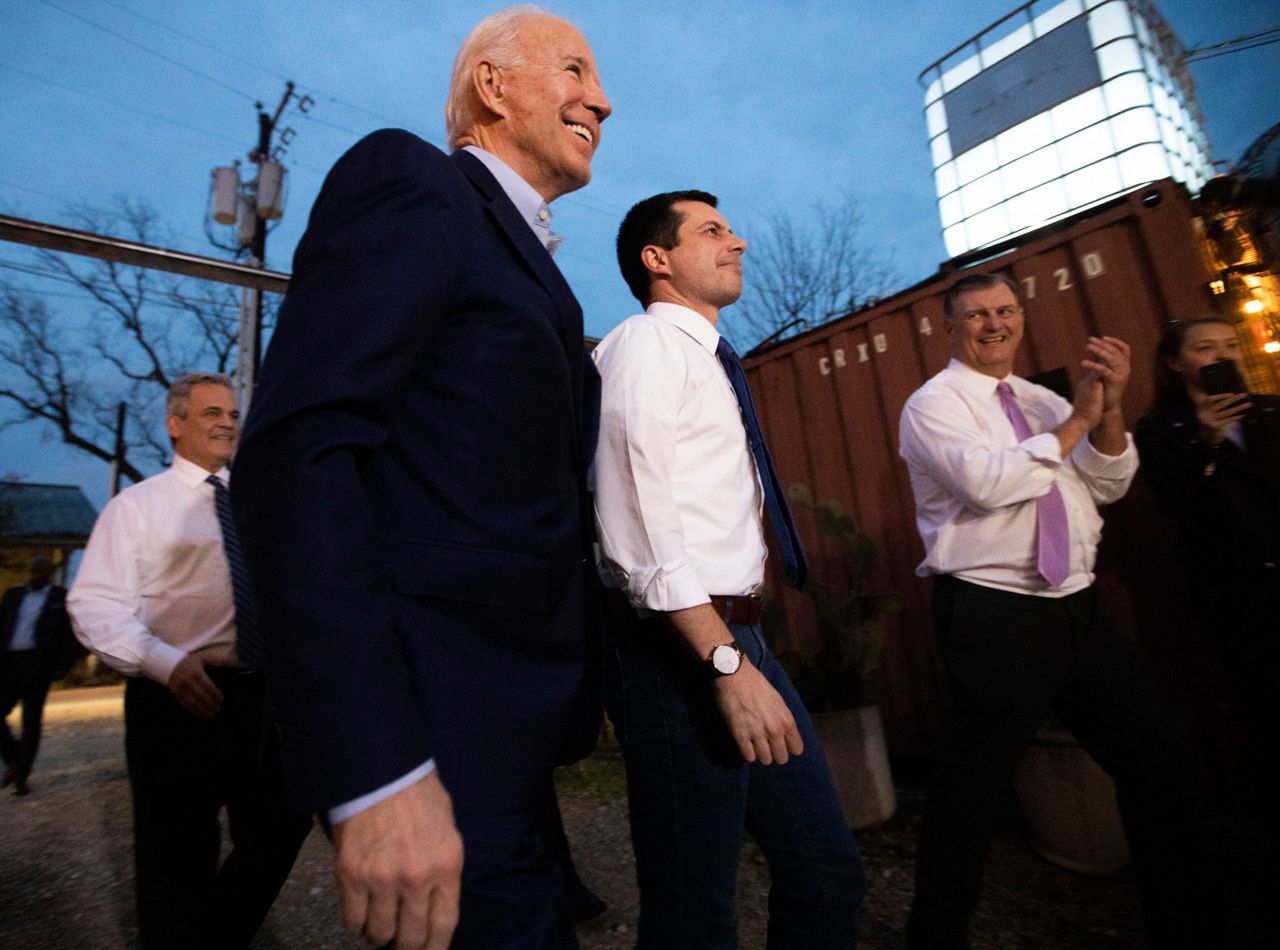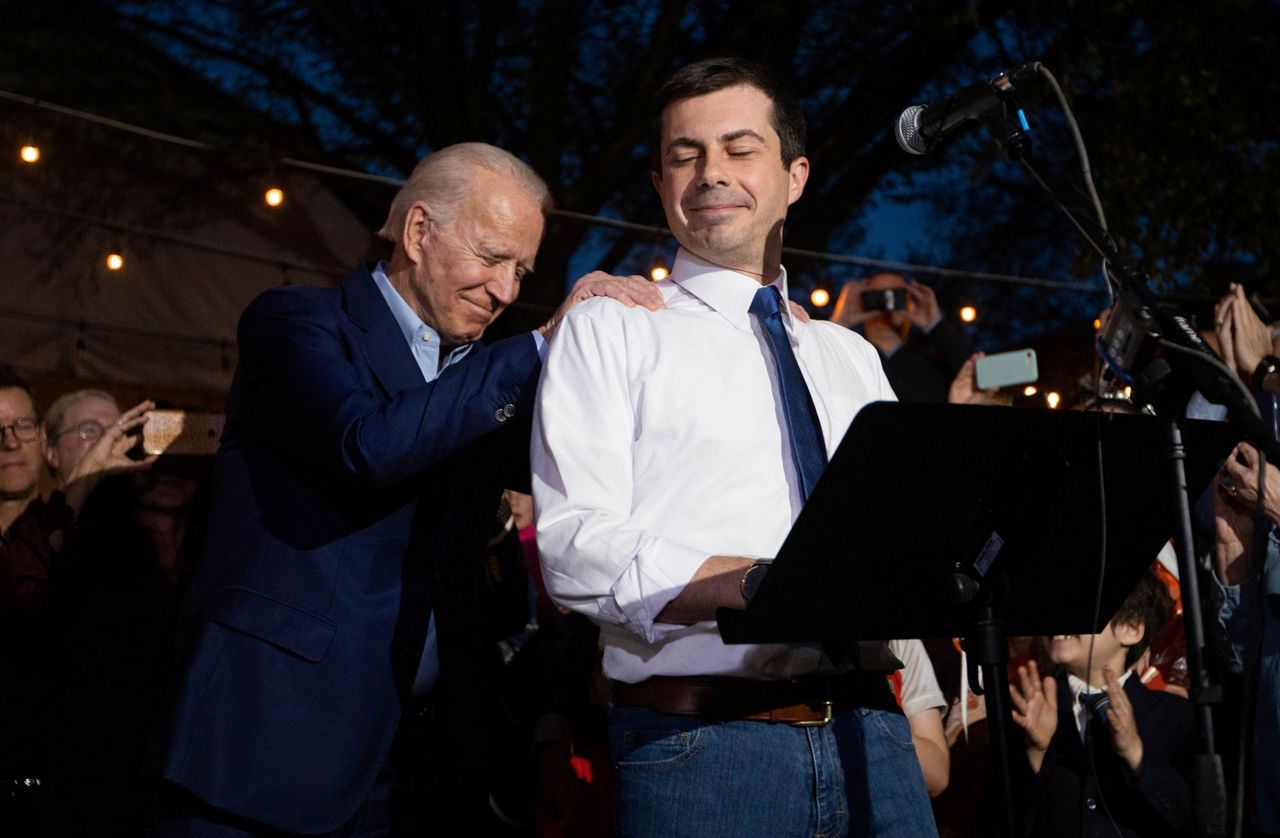WASHINGTON (AP) — He opened February by sharing victory with one of the Democratic Party's best-known figures and ended it with a humbling defeat at the hands of another. Yet Pete Buttigieg's unlikely path over the last 30 days exceeded virtually everyone's expectations of his presidential ambitions, except perhaps his own.
The former mayor of Indiana's fourth largest city, an openly gay 38-year-old whose name most voters still can't pronounce, formally suspended his White House bid Sunday night. He did so acknowledging that he no longer had a viable path to the Democratic Party's presidential nomination, even after finishing in the top four in each of the first four contests of the 2020 primary season.
“By every historical measure, we were never supposed to get anywhere at all,” Buttigieg reminded his hometown crowd, which was disappointed and hopeful at the same time. The crowd interrupted his speech with chants of “2024.”
Buttigieg endorsed his Democratic rival Joe Biden and appeared with him in Dallas on Monday night. Minnesota Sen. Amy Klobuchar, who dropped out earlier Monday, attended Biden's Texas rally and endorsed him, her campaign said.
Buttigieg began February effectively in a first-place tie with progressive powerhouse Bernie Sanders in Iowa's presidential caucuses. The mayor made history as the first openly gay candidate to earn a presidential delegate, never mind becoming the first to finish on top in any presidential primary contest.
He won over Iowa as a fresh-faced Democrat with a pragmatic Midwestern message backed by an aggressive strategy to reach voters in overlooked rural communities. And if not for the state's chaotic struggle to report its results, the Feb. 3 contest could have vaulted him to further heights.
Buttigieg and his competitors pivoted quickly to New Hampshire, where he was a decided underdog in a field that featured two neighboring senators and a former vice president. Yet the mayor from nearly 1000 miles (1,600 kilometers) away showed surprising strength again.
He nearly tripled Massachusetts Sen. Elizabeth Warren's vote total and finished just one percentage point behind Sanders, the winner.
“You know, he very nearly pulled it off,” said David Axelrod, who served as the senior adviser to former President Barack Obama and was at times an unofficial Buttigieg booster.
Axelrod cited Iowa's reporting fiasco and Klobuchar's New Hampshire surge as key factors that limited Buttigieg's rise.
“If those two things would have been different, we would be having a different conversation now,” he said.
Questions about Buttigieg's appeal with voters of color loomed over strong finishes in overwhelmingly white Iowa and New Hampshire, however. And as soon as the race shifted into more diverse terrain, Buttigieg's star began to fade.
In Nevada, he finished in third place behind Sanders and Biden, even as he bested two senators and a billionaire. And by the time the race moved to South Carolina a week later, Buttigieg's weakness with African American voters was painfully exposed.
He failed to hit double digits in the first-in-the-South contest on Saturday, scoring a distant fourth place in a state in which more than half of Democratic primary voters were not white. Less than two hours after holding what would be his final rally in Raleigh, North Carolina, Buttigieg was hunkered on the phone in a hotel near Americus, Georgia, working out the details of ending his campaign, people familiar with the conversation said.
On the phone with him were communications strategist Lis Smith, senior strategist Michael Halle, pollster Katie Connolly, media adviser Larry Grisalano, deputy campaign manager Hari Sevugan and longtime campaign manager Mike Schmuhl, according to aides familiar with the conversation who spoke on condition of anonymity because they were not authorized to share internal discussions.
Having laid out a narrow but viable path to the nomination through an uncertain state-by-state fight, advisers painted a picture of a difficult road ahead.
After someone interjected that Buttigieg should speak, the candidate, known for an understated deliberative style, noted effectively that if the conversation had reached that point the decision was pretty clear.
Though there were details to work out about how to handle his appearances on Sunday news programs, the conversation quickly turned to the logistics of pulling down his Texas campaign events scheduled for Sunday and how to arrange for the speech in South Bend.
When discussion during the call turned to a possible endorsement, the team decided it might detract from what was a speech heavy with references to Buttigieg’s groundbreaking campaign and his eye on the future.
It marked a humbling end to a history-making month for the young Democrat, who could wait another 10 presidential elections to run again and still be the same age as the man who knocked him out of the race.
Buttigieg's decision reflected the urgency of the moment as establishment Democrats feared Sanders' rise might be unstoppable unless the party's moderate wing united behind Biden's candidacy. It also reflected the no-time-to-waste analytical nature of Buttigieg himself, a former Rhodes scholar who worked for the McKinsey & Company management consulting firm soon after finishing his Ivy League education.
“The truth is the path has narrowed to a close for our candidacy if not for our cause,” Buttigieg told supporters in South Bend. “We must recognize that at this point in the race, the best way to keep faith with those goals and ideals is to step aside and help bring our party and country together.”
Buttigieg and Biden traded voicemails on Sunday. Buttigieg has spent the past several weeks warning that nominating Sanders would be risky.
And as the first openly gay candidate to seriously contend for the presidency, he nodded to the historic nature of his campaign. He kissed his husband, Chasten, as he walked onto the stage and offered a message for children who might be watching.
“We send a message to every kid out there wondering if whatever marks them out as different means they are somehow destined to be less than," Buttigieg said. “To see that someone who once felt that exact same way can become a leading American presidential candidate with his husband by his side."
Meanwhile, Axelrod said “the Pete Buttigieg story isn't over."
“He’s 38 years old,” the former Obama strategist said. “He’s vaulted himself into the national conversation. He obviously has work to do on some things that -- some weaknesses we’ve seen in this election -- but whenever there is a conversation again about Democratic candidates, he’ll be in that conversation. And that’s a remarkable achievement, given where he started a year ago.”
___
Beaumont reported from Des Moines, Iowa.
___
Catch up on the 2020 election campaign with AP experts on our weekly politics podcast, “Ground Game.”
___
This story has been corrected to show the surname of the campaign manager is Schmuhl, not Schmul.
Copyright 2020 The Associated Press. All rights reserved. This material may not be published, broadcast, rewritten or redistributed without permission.



